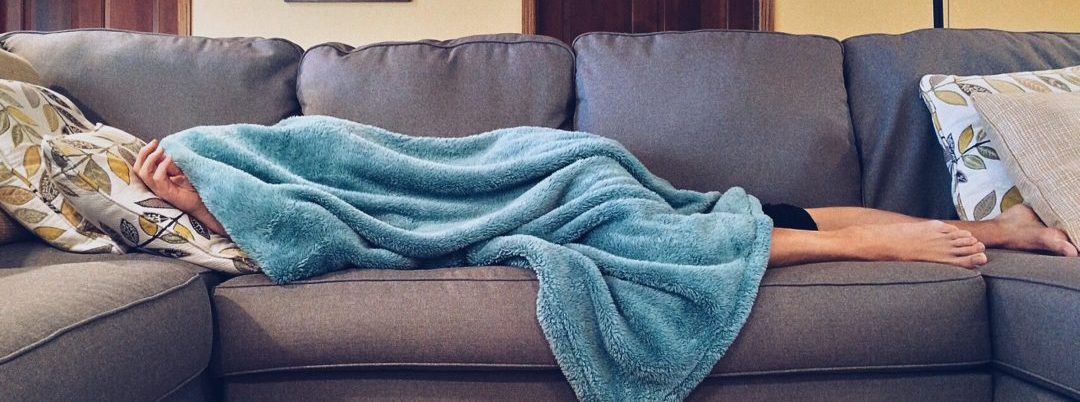
According to renowned American psychologist Abraham Maslow, human needs can be categorized into 5 different groups, based on order of importance, as illustrated in his hierarchy of needs model. At the base of this model—and of utmost importance—are our physiological or basic needs: food, water, and rest. And while these are equally essential to our very existence, we often put the lattermost on the backburner.
We prioritize eating at least three meals a day and stress the importance of drinking a plethora of water, but we rarely get enough sleep.
While the recommended sleep range varies with age, the very minimum for adults—young and old alike—is 7 hours of sleep a night, according to the National Sleep Foundation. Most, however, ignore this recommendation and instead prioritize watching Netflix, living on social media, or even doing work into the wee hours of the night… and they face the harmful consequences. When you don’t get enough sleep, your brain suffers: your memory, decision-making, and problem-solving skills are temporarily diminished—likely due to a disruption in communication between brain cells, as revealed by a new study “Selective neuronal lapses precede human cognitive lapses following sleep deprivation.”
“We discovered that starving the body of sleep also robs neurons of the ability to function properly,” explained Dr. Itzhak Fried, senior author of the study and professor of neurosurgery at the David Geffen School of Medicine at UCLA and Tel Aviv University. “This leads to cognitive lapses in how we perceive and react to the world around us.”
To reach these findings, the research team evaluated 12 individuals preparing to undergo surgery for epilepsy—a neurological disorder characterized by unpredictable seizures. These patients had electrodes implanted in their brains, as to reveal the origin of their seizures before surgery. And because sleep deprivation has proven to provoke seizures, they stayed awake all night to accelerate the occurrence of an epileptic episode and curtail their hospital stay.
The researchers used this to their advantage: they asked each participant to classify various images as quickly as they could, whilst recording the firing of nearly 1,500 brain cells (combined), focusing particularly on neurons located in the temporal lobe—those responsible for regulating memory and visual perception. They observed that the task at hand became much more challenging for the patients as they grew more and more tired; and as their outward functioning slowed, so did their brain cells: “Unlike the usual rapid reaction, the neurons responded slowly and fired more weakly, and their transmissions dragged on longer than usual,” explained lead author Yuval Nir.
Moreover, the team of researchers also found that brain waves were slowed in addition to the slow-moving cellular activity in multiple areas of the brain, which further hindered the patients’ ability to perform tasks. These findings explain why you may feel groggy or slow after a long night with minimal sleep; why you so easily misplace or forget your keys; why you space out on the drive to work and risk injuring another driver or a pedestrian crossing the street. “The very act of seeing the pedestrian slows down in the driver’s overtired brain. It takes longer for his brain to register what he’s perceiving,” explained Fried.
This study sheds light on the importance of sleep and explains how it affects not only the sleep-deprived individual, but those around them. The research team stresses these harmful effects, even comparing them to those of drinking alcohol, and brings the way we view sleep deprivation into question. They plan on expanding upon these findings in future studies, with hopes of furthering our understanding of sleep, its benefits, and our need for it.
Sources: UCLA (2017, November 27). Spacing Out After a Late Night? Here’s Why. NeuroscienceNews. Retrieved November 27, 2017 from http://neurosciencenews.com/sleep-deprivation-space-out-8037/
Nir, Y., Andrillon, T., Marmelshtein, A., Suthana, N., Cirelli, C., Tononi, G., & Fried, I. (2017, November 6). Selective neuronal lapses precede human cognitive lapses following sleep deprivation. Nature Medicine. Retrieved on November 29, 2017 from https://www.nature.com/articles/nm.4433
Let’s keep in touch! Sign up to receive our newsletter:
Start a Relationship with An Exceptional Counselor
- Skilled and caring professional counselors
- Accepting all major and most insurances
- High-touch customer service & premium benefits
- Same- or next-day appointments
- Ultra-flexible 23.5hr cancellations













